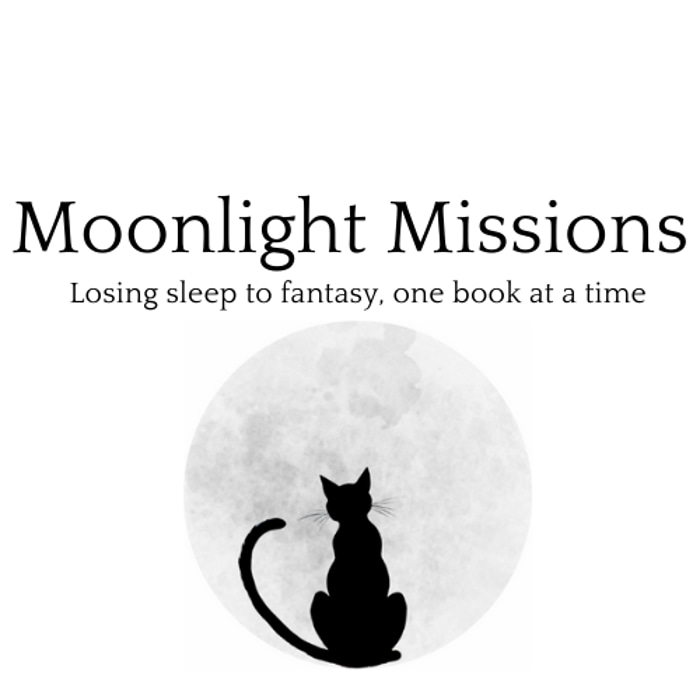Book Review: Faithbreaker by Hannah Kaner
Faithbreaker, published in 2025, is the third and final book in the Fallen Gods trilogy by Hannah Kaner. It's a story that explores power, faith, love and sacrifice. It also ended up being a disappointing conclusion to the story for me.
FANTASYFANTASY BOOK REVIEW
5/2/20253 min read
Fallen Gods #3 | Fantasy | Published 2025
You can read my reviews of Goodkiller and Sunbringer by clicking on the links.
Spoiler Warning: This review contains major spoilers for Faithbreaker and the entire Fallen Gods trilogy. Proceed with caution if you haven’t finished all three books.
Overall Rating: ★★★☆☆ (3/5 stars)
The third and final book in the Fallen Gods trilogy by Hannah Kaner. It's a story that explores power, faith, love and sacrifice. It also ended up being a disappointing conclusion to the story for me. If I hadn’t loved the first two books as much as I did, this rating would be even lower.
My Thoughts
I’m so disappointed in this book. It feels like all the things I loved about the first two installments came back to mock me here. This might be the greatest “you know what, it’s not you, it’s me” moment I’ve ever experienced.
The story begins with Lessa Craier taking her ship to Irisa as an ambassador in search of allies. Kissen, Inara, and Skediceth accompany her. After a series of trials, the ship reaches Irisa. Following failed negotiations and a botched mutiny, Lessa—helped by Elo’s mother—returns to Middren with reinforcements.
Meanwhile, Elogast stays with Arren and is promoted to commander general. They secure a Pyrrhic victory on the battlefield, though their efforts are constantly undermined by scheming nobles and the overwhelming strength of the Talician army and Hseth. Eventually, all characters reunite for one final, desperate confrontation.
Arren
There were so many things I wanted to be wrong about, but Arren’s death was a huge disappointment on multiple levels. He had all the makings of a character who could have walked the line between villainy and redemption, but the choice to redeem him only through death felt like a cop-out. I know people love this trope—I don’t. I saw it coming from Sunbringer, and I thought I’d made peace with it.
But then he dies in the most ridiculous way possible. His cleric convinces his most loyal knight to kill him during a crucial showdown with Hseth. It sounds intriguing on paper, but the execution was so poorly set up that it felt laughable. I literally put the book down when it happened—and with only that chapter and the epilogue left, that’s not when you want to lose your reader. The timing made no sense. It felt like unintentional comedy.
Skediceth
Skedi sacrificing himself so Inara could summon the gods should’ve been emotional. Saying goodbye to him was heartbreaking, but his death suddenly being the catalyst to summon all the gods of Middren felt unearned. What should have been an epic finale became a rushed, chaotic mess. I often feel that major deaths at the end are the new norm, but I wish they weren't because they often feel pointless.
That said, Skedi getting his own shrine was a beautiful touch. I genuinely loved that. A reborn Skedi in the epilogue would’ve been a stronger ending, but alas.
Inara
For someone who drives the plot so much, Inara felt oddly flat and inconsequential. I kept forgetting where she was for most of the book. Her climactic moment felt overpowered and inconsistent with the book’s logic up to that point. By the time the epilogue came around, I’d emotionally checked out so I might have missed it, but it felt like her story did not even reach a resolution.
Elogast
Elo’s arc could have been great. He wrestled with grief, duty, and his feelings for Arren. But the romantic payoff between them fell flat. Instead of a well-paced emotional journey, Elo decides to start the relationship with the King when he's already so deeply shaken that it feels like he's just doing it because it's expected of him - by Arren, the reader etc. Their relationship had so much potential, but the resolution felt empty—especially after Arren’s death, which let Elo avoid grappling with the reality of loving someone morally compromised. That was the story I wanted.
Kissen
I adore Kissen, but her relationship with Lessa felt forced and added little to the story. Like Inara, she seemed sidelined here, and it didn’t feel like she received her own story or her own conclusion.
Other Disappointments
Deaths felt cheap. I loved Legs, Kissen’s horse, but it’s telling that his death had more impact than the mutiny on Lessa’s ship or the loss of Elo’s comrades.
Lessa’s pirate crew. They were cardboard cut-outs whose only function was to die or cause problems. Her legendary pirate status didn’t feel earned, especially given her age.
The separation of main characters—again. It didn’t add anything new this time around.
The Things I Liked
The food descriptions in Irisa—mouthwatering!
Skedi’s shrine.
Kissen and Elogast’s friendship. They had strong BFF vibes in this book, and I really enjoyed that dynamic. It wasn’t well-built, but it worked for me.
Final Thoughts
I loved Godkiller, and I liked Sunbringer. Looking back, Sunbringer hinted at the direction Faithbreaker would take—I just didn’t see it. I expected a grand, triumphant finale with my favorite characters working together to save the world. What I got was a flat, rushed story that struggled to tie things together.
I had a hard time finishing this book. My 3-star rating is based entirely on how much I loved the first two books. If this had been the first or second installment, I don’t think I would’ve finished it. I’ll give this author another chance in the future, but I won’t be rushing to pick up her next release.
Moonlight Missions
Losing sleep to fantasy, one book at a time.
Stay in touch!
© 2025. All rights reserved.
